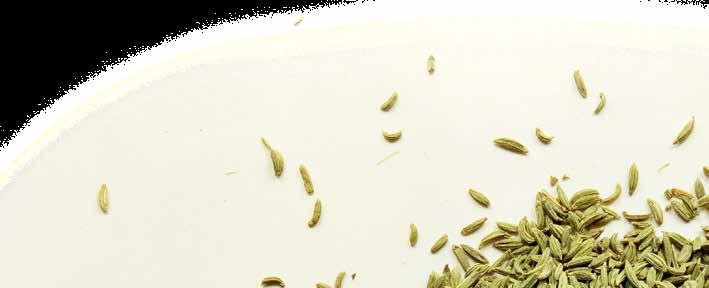
4 minute read
Herbs
FALLS GARDENING WORKSHOPS If either getting more out of your garden or perhaps starting a vegetable garden is your goal, Falls Retreat have some fun and inspiring courses designed just for you. Join the team in their working garden to learn everything from the basics of composting or worm farming to propagating your own plants. These are fun and interactive and include a beautiful shared lunch. SATURDAY MAY 2 AND JUNE 6 The Full Monty $125pp includes morning tea, full day interactive workshop with Nicki MurrayOrr of VitalHarvest, notes to take home and a delicious shared lunch.
SATURDAY 28 MARCH Edible Gardening for Beginners in the morning Composting & Worm Farming in the afternoon Book for both and save 15% SATURDAY APRIL 18, 9.30AM Growing Healthy Vegies SATURDAY 9 MAY, 9.30AM The Educated Gardener For more information and to book go to www.fallsretreat.co.nz
GARDEN CLUBS Are you looking for a place to visit? Get in touch with Falls Retreat who’d love to tailor a garden session/lunch to suit.
FROM LITTLE SEEDS DOES YOUR HEALTH GROW…
At this time of year with our herbal plants in full growth, it is time to think about gathering, harvesting and storing your herbs for use throughout the year. Our home gardens can provide an abundance of herbs and spices to use during the year, it just takes a little bit of energy at the end of summer to pick and store them. Many herb plants will be coming into seed, particularly the commonly grown annuals and perennials, such as aniseed, caraway, cumin, dill, fenugreek, fennel and nigella. If you would like to harvest your seeds (or any aerial part of the plants), pick a clear dry day and head out into the garden after any morning dew has cleared. You want to be picking dry seed heads, as any moisture may lead to mould and fungi growth on storage, wasting all your work. Pick from healthy plants, leaving some seed heads for the birds and for self-seeding in the garden for next year’s growth. For plants with long stems and umbel type heads, such as fennel and dill, it is very easy to pick the stems with the flower/seed heads attached and place the stems upside down into a large brown paper bag. Label with plant name, date of harvest and then place the bag somewhere warm, leaving the seeds to dry. When they are completely dry, vigorously shake the bag and you will find many of the seeds will be at the bottom of the bag. Seeds that remain on the umbel will need to be picked off by hand.
It is a good idea to place the loose seeds into a brown bag for a further week or two before placing in a jar or a storage container to eliminate any remaining moisture. So what medicinal uses do the seeds have? Aniseed Seeds These pleasant tasting seeds help reduce spasms and mucus in the respiratory system, making them useful for hard dry coughs. They also ease discomfort in the digestive tract. The small seeds can be used as a breath freshener and are often chewed at the end of a meal. Celery Seeds Celery seeds are much used in herbal medicine for its ability to aid in the excretion of waste material, through the kidneys, that are responsible for the irritation and consequent inflammation of joints, think conditions such as rheumatism, arthritis and gout. As with fennel, celery seeds are also beneficial for the digestive system. Fennel Seeds As medical herbalists we would prescribe fennel for its calming and antiinflammatory actions on the digestive tract. It would be used in cases of colic, flatulence, indigestion and bloating. The volatile oils in fennel are also helpful as an expectorant, helping to loosen mucus in coughs. Fennel is a popular ingredient in tea blends for breastfeeding mothers and babies because of its calming action and ability to aid in increasing breastmilk in lactating mothers. Nigella Seeds Also known as black cumin or black seed, these have become popular in recent years; however, they have a long history of medicinal and culinary use, particularly in the Middle East and Asia. They have been used for indigestion, loss of appetite, chest congestion, asthma and arthritis. In clinical studies nigella has helped reduce symptoms in allergy conditions such as hayfever. Nigella is beneficial to the digestive tract, helping to support a healthy appetite and reduce digestive bloating. It also shows promise for its ability to support healthy lipid balance and reduce worm infestation. If you are not a keen gardener, many of the seeds mentioned are readily available in specialty shops for use in your cooking or for making teas. Here at the dispensary we also use these seeds in a more medicinal form when prescribing individual tonics. If this sounds interesting to you, please get in touch with our team of naturopaths and medical herbalists at The Herbal Dispensary.
by Bronwyn Lowe Medical Herbalist MNZAMH
The Herbal Dispensary 6 Wallis Street, Raglan










